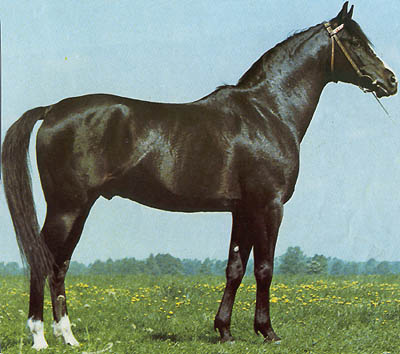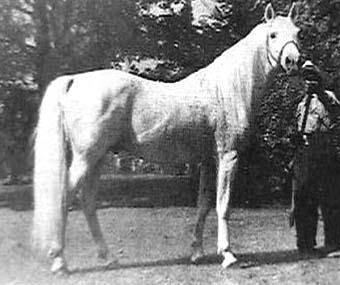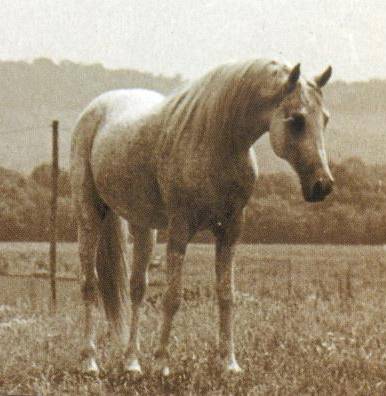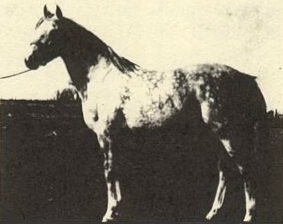

Polish Arab


Introduction: If you have any comments or suggestions, please click here. I am quite certain the above left picture is of a Polish Arab. The above right picture is of a Polish Arabian named Czubuthan (thank you, Christi Camp!).
Names: Polish Arab. I think the Polish Arab is really just a strain of the Arabian breed but there is enough information about it that I have given it a separate page. I will probably do this with other strains as I learn more about them.
Origin: In
1508, the high-class Chrestowka stud was founded with principally Arabian
horses. A proportion of these were sold to the Turks, who, in turn, sold some of them to England, where they were known as
'Turks" or "Polands"--a practice that created a lot of confusion in the past,
when they were thought to be distinct races of horses. During the Great
War, much of the Polish pedigree stock was considered representative of its
aristocratic owners and was destroyed on this account. It seems
inconceivable in these times that, when the owners of the famous Antoniny and
Slavut studs were massacred and their homes razed to the ground, a number of
their horses were actually tortured and burned alive.
Fine studs of both Arabians
and Thoroughbreds
were started
again between the two wars, but once more sadly decimated during World War
II. In the past twenty years (1950-1970), the Poles have begun again and
created new Arabian
studs. Their horses have always been of world repute,
and several American studs are founded on Polish Arabian blood. The Poles
keep up their high standards by a policy of strict selection based on races held
at Lvov. They also have the laudable practice of introducing new blood by
importing valuable, true desert-bred Arabian
horses from the Middle East.
Breeding:
Description:
Back: Longish.
Color: Can be bay, gray or chestnut.
Eyes: Large.
Size: 14.2-15.1 hands.
Temperament:
Features: Very tough and strong.
Uses: Used as a racehorse.
Accomplishments:
Curiosities:
Profiles: Skowrenek - One of the most famous Arabian sires of all time; bred in 1909 at Volynia; a dazzling white horse with the long curved neck, huge eyes and "dished" profile that characterizes the best of his breed. The stallion was imported to England, sold to a Mr. Musgrave Clark and eventually seen by Lady Wentworth who owned the renowned Crabbet Park Arabian stud. She was so entranced with the horse's beauty and potential that she did not rest until Skowrenek was installed at Crabbet--where he is said to have founded a new dynasty of Arabian horses.
I can't resist including two more pictures of the beautiful Polish Arab Czubuthan who represents the breed above (yes, these really are the same horse; isn't he beautiful, though?!):


Conclusion: